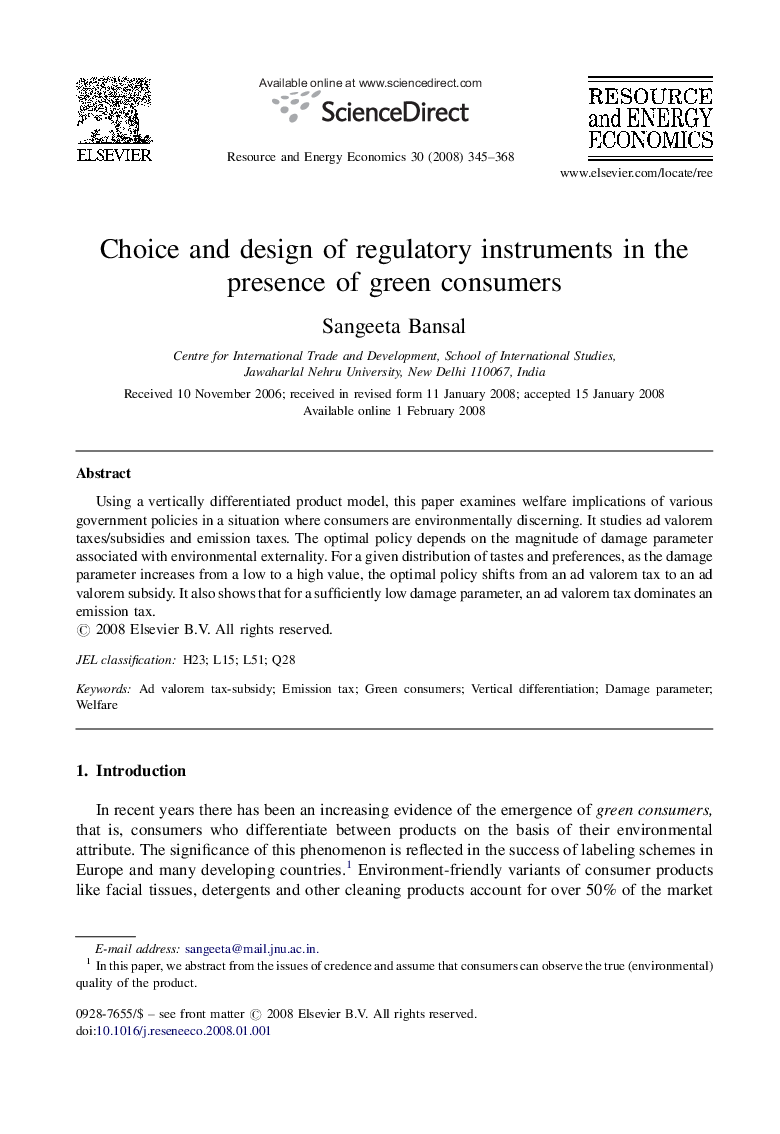| Article ID | Journal | Published Year | Pages | File Type |
|---|---|---|---|---|
| 985496 | Resource and Energy Economics | 2008 | 24 Pages |
Abstract
Using a vertically differentiated product model, this paper examines welfare implications of various government policies in a situation where consumers are environmentally discerning. It studies ad valorem taxes/subsidies and emission taxes. The optimal policy depends on the magnitude of damage parameter associated with environmental externality. For a given distribution of tastes and preferences, as the damage parameter increases from a low to a high value, the optimal policy shifts from an ad valorem tax to an ad valorem subsidy. It also shows that for a sufficiently low damage parameter, an ad valorem tax dominates an emission tax.
Related Topics
Physical Sciences and Engineering
Energy
Energy (General)
Authors
Sangeeta Bansal,
